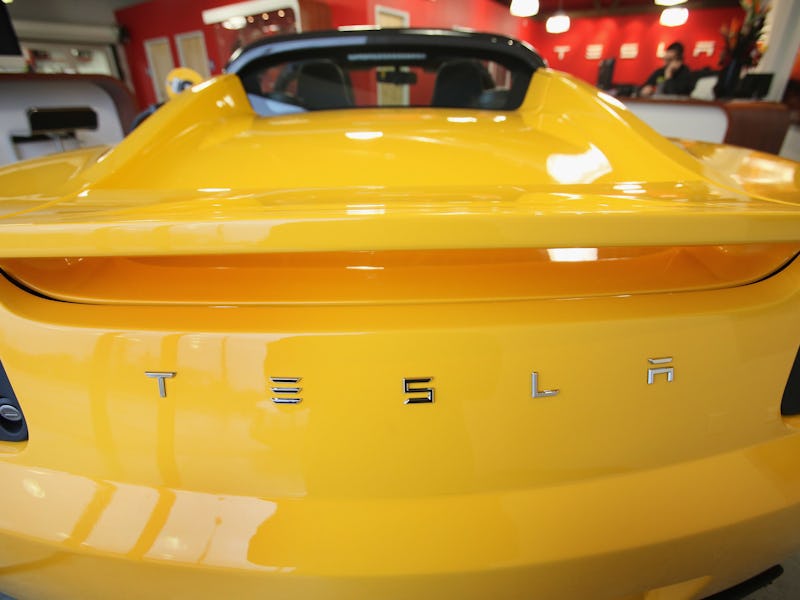It's Unclear How Donald Trump's "Border Tax" Would Affect Tesla

A new industry report projects that Tesla won’t have to raise its prices much, but since Tesla is such a new company, everyone is just pretty much guessing.
The report from Baum and Associates was part of an effort to estimate the actual impact of a border tax on the auto industry. The emphasis of the report was the possible impact on customers based on the increased costs inflicted on automakers. Because Tesla assembles every one of its cars in its Fremont, California facility, it would escape a “border tax” on a finished product, like automakers that assemble cars in Mexico and ship them across the border. Although Tesla gets off easy in that respect, founder Alan Baum makes it clear that the company may face unseen costs on imported parts — and he says no one is really sure how many parts Tesla imports.
“We actually don’t have a full understanding there. We don’t know for example the part content of Tesla from overseas… because it’s a new company, we kind of punted on that. There’s less data available,” Baum tells Inverse.
From what we know about Tesla manufacturing, it’s clear that it gets materials to make its cars from all over, Baum explains: “They’re likely to have a global footprint, I just don’t know how global it is.”
A diagram in Automotive News in 2012 showed the huge range of imported parts a 2013 Model S is packing, but the hardware and software demands will have changed in recent versions of the Model S, Model X, and Model 3. Check that out here:
This is where some of the Tesla parts come from -- no one is really sure about the rest of the car.
Baum says the assumptions of the study were basically that the corporate income tax would be dropped to 20 percent, and that companies would be charged a 20 percent import tax. Basically, this creates a system that favors cars made in the United States, so Ford would only have to increase the cost of its cars by $282, where a company that mainly imports, like Volkswagen might have to increase its sales price by $6,779. Jaguar Land Rover, which is a fully imported vehicle, would be the hardest hit — Baum’s estimates say the cost of its fancy SUV’s could be as much as $17,000 higher. Baum noted that there are other factors at play here — the increase in cost due to a border tax isn’t a guarantee that car prices will change accordingly, it’s just a useful way to represent the increased cost to automakers.
So for now, only Elon Musk knows how much Tesla would lose if Donald Trump enacts a border tax. With its California manufacturing, Tesla could still do better than other automakers, but it’s certainly in trouble if EPA standards are reduced, or electric car tax credits disappear.